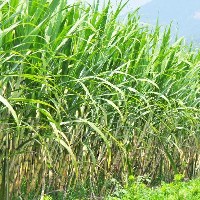23 November 2021
Kick-off event for Project FairSTREAM
This kick-ff event serves to introduce the Strategic Initiatives project FairSTREAM to IIASA colleagues and associates, as well as to start the conversation on one concrete topic at the heart of FairSTREAM work: stakeholder engagement and knowledge co-production at IIASA. The project is an in-house collaboration by the Equity and Justice (EQU), Water Security (WAT), and Biodiversity, Ecology, & Conservation (BEC) IIASA Research Groups to advance trans-disciplinary research and upscaling via agent-based modelling at the food-water-biodiversity nexus.
Where & When
The hybrid event (participation is possible either in-person at IIASA or virtually via ZOOM) will be held in the Gvishiani room at IIASA from 14:30 - 17:00 (CET). Participation is possible for individual parts or the whole event.
Registrations for this event have been extended to 16 November. Please register via email to Jenan Irshaid () or by clicking on this link.
PROGRAM
PART I
14:30 Welcome by the project principle investigators
14:35 Flashlight presentations of different project components
15:00 Short responses from advisory board members
15:15 Q&A session
PART II
15:35 Experiences working and modeling with stakeholders at IIASA: Facilitated
focus-group discussions
16:50 Summary and outlook
Regardless of whether or not you will be able to join the event, we kindly ask for your assistance in completing the following short survey: Click here to be redirected to the survey.
PROJECT OVERVIEW
Conflicting views on procedural and outcome fairness often remain unresolved and jeopardize finding viable solutions for many nexus issues. Improving our ability to understand and reconcile these claims about what is fair, is key for managing risks for example at the food-water-biodiversity nexus. This is a major challenge that requires the integration of multiple sources of knowledge and the cooperation of many different societal actors.
To support this endeavour IIASA researchers need to align their expertise in co-designing participatory processes with those in quantitative modelling. To this extent, we will first create a methods toolkit for co-production that explicitly considers procedural and distributional justice. Based on this toolkit we will then design and implement a co-production process, which we will support and upscale by quantifying distributional justice in stakeholder visions for future development of the region. We do so by building a large-scale agent-based model, coupled to a hydrological and biodiversity model, that simulates millions of individual farmers.
The developed methods will be applied in a case study of the Bhima basin in India.
CONTACT DETAILS
Research Scholar Equity and Justice Research Group - Population and Just Societies Program
Research Scholar Water Security Research Group - Biodiversity and Natural Resources Program
Researcher Equity and Justice Research Group - Population and Just Societies Program
Researcher Water Security Research Group - Biodiversity and Natural Resources Program


